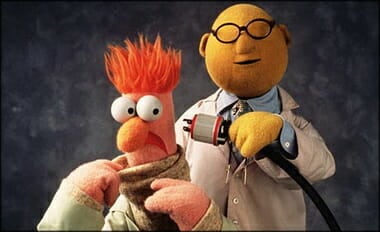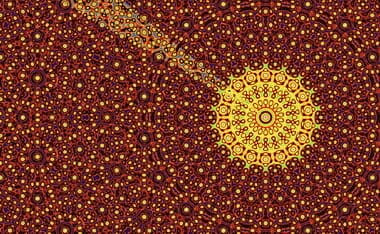(Updated)
On this episode of ID the Future, host David Boze examines the plight of Dr. Daniel Shechtman, recent winner of the Nobel Prize in Chemistry for his discovery of quasicrystals, who had previously suffered much rejection and ridicule for threatening the consensus of the scientific establishment. Listen in and consider the parallels between Shechtman’s once-heretical science and the modern-day rejection and scorn of the ID movement.
Has Modern Science Become Dysfunctional?
WASHINGTON, DC – March 27, 2012 — The recent explosion in the number of retractions in scientific journals is just the tip of the iceberg and a symptom of a greater dysfunction that has been evolving the world of biomedical research say the editors-in-chief of two prominent journals in a presentation before a committee of the National Academy of Sciences (NAS) today.
and a symptom of a greater dysfunction that has been evolving the world of biomedical research say the editors-in-chief of two prominent journals in a presentation before a committee of the National Academy of Sciences (NAS) today.
“Incentives have evolved over the decades to encourage some behaviors that are detrimental to good science,” says Ferric Fang, editor-in-chief of the journal Infection and Immunity, a publication of the American Society for Microbiology (ASM), who is speaking today at the meeting of the Committee of Science, Technology, and Law of the NAS along with Arturo Casadevall, editor-in-chief of mBio®, the ASM’s online, open-access journal.
In the past decade the number of retraction notices for scientific journals has increased more than 10-fold while the number of journals articles published has only increased by 44%. While retractions still represent a very small percentage of the total, the increase is still disturbing because it undermines society’s confidence in scientific results and on public policy decisions that are based on those results, says Casadevall. Some of the retractions are due to simple error but many are a result of misconduct including falsification of data and plagiarism.
More concerning, say the editors, is that this trend may be a symptom of a growing dysfunction in the biomedical sciences, one that needs to be addressed soon. At the heart of the problem is an economic incentive system fueling a hypercompetitive environment that is fostering poor scientific practices, including frank misconduct.
The root of the problem is a lack of sufficient resources to sustain the current enterprise. Too many researchers are competing for too little funding, creating a survival-of-the-fittest, winner-take-all environment where researchers increasingly feel pressure to publish, especially in high-prestige journals.
“The surest ticket to getting a grant or job is getting published in a high profile journal,” says Fang. “This is an unhealthy belief that can lead a scientist to engage in sensationalism and sometimes even dishonest behavior to salvage their career.”
Funding is just one aspect of a very complex problem Casadevall and Fang see growing in the biomedical sciences. In a series of editorials in the journal Infection and Immunity they describe their views in detail, arguing that science is not as healthy as it could be or as it needs to be to effectively address the challenges facing humanity in the 21st century.
“Incentives in the current system place scientists under tremendous stress, discourage cooperation, encourage poor scientific practices and deter new talent from entering the field,” they write. “It is time for a discussion of how the scientific enterprise can be reformed to become more effective and robust.”
The answers, they write, must come not only from within the scientific community but from society as a whole that has helped create the current incentive structure that is fostering the dysfunction. In the editorials they outline a series of recommended reforms including methodological, cultural and structural changes.
“In the end, it is not the number of high-impact-factor papers, prizes or grant dollars that matters most, but the joys of discovery and the innumerable contributions both large and small that one makes through contact with other scientists,” they write. “Only science can provide solutions to many of the most urgent needs of contemporary society. A conversation on how to reform science should begin now.”
Here are two short videos by MIT nuclear scientist, Ian Huthinson (PDF Bio) discussing scientism:
(Above videos) What is science? And how can we bring the answer to bear on the question of whether science and faith are at war with each other? Ian Hutchinson, professor at MIT and author of “Monopolizing Knowledge,” shares his take at The Veritas Forum.
So, we’re told, liberals trust science more than conservatives do. The implication — freely peddled in much news coverage — is that conservatives are either dumber or more politicized than liberals. This fits in neatly with a narrative established in screeds like Chris Mooney’s 2005 book, “The Republican War Against Science.” The only problem is it’s not true.
Consider an interesting new study by Gordon Gauchat, a postdoctoral fellow in sociology at the University of North Carolina-Chapel Hill. The folks at Inside Higher Ed summarized it this way: “Just over 34 percent of conservatives had confidence in science as an institution in 2010, representing a long-term decline from 48 percent in 1974, according to a paper being published today in American Sociological Review.” The report also noted that in 1974 conservatives were likelier to trust science than were liberals.
So what does that mean?
Gauchat points out, correctly, that you can’t lay the blame at the feet of biblical creationists and anti-evolutionists, who were no less common in 1974. Nor is sheer ignorance responsible, as the decline in trust rose with education. Instead, he suggests that it’s the increasing use of science as ammunition for big-government schemes that has led to more skepticism.
There’s probably something to that, but if you read the actual paper something else becomes clear. Despite the language in the coverage, it’s not science as a method that people are losing confidence in; it’s scientists and the institutions that purport to speak for them.
Gauchat’s paper was based on annual responses in the General Social Survey, which asks people: “I am going to name some institutions in this country. As far as the people running these institutions are concerned, would you say you have a great deal of confidence, only some confidence, or hardly any confidence at all in them?” One institution mentioned was “the scientific community.”
So when fewer people answered “a great deal” and more answered “hardly any” with regard to “the scientific community,” they were demonstrating more skepticism not toward science but toward the people running scientific institutions.
With this in mind, a rise in skepticism isn’t such a surprise. Public skepticism has grown toward most institutions over the last several decades, and with good reason, as a seemingly endless series of scandals and episodes of dishonesty have illustrated.
In fact, given that Americans have grown broadly more skeptical of institutions in general, it’s not surprising that conservatives are more skeptical of scientific institutions than they were almost 40 years ago. What’s surprising is that liberals have grown less skeptical over the same period. (Perhaps because scientific institutions have been telling them things they want to hear?)
Regardless, while one should trust science as a method — honestly done, science remains the best way at getting to the truth on a wide range of factual matters — there’s no particular reason why one should trust scientists and especially no particular reason why one should trust the people running scientific institutions, who often aren’t scientists themselves.
In fact, the very core of the scientific method is supposed to be skepticism. We accept arguments not because they come from people in authority but because they can be proven correct — in independent experiments by independent experimenters. If you make a claim that can’t be proven false in an independent experiment, you’re not really making a scientific claim at all.
And saying, “trust us,” while denouncing skeptics as — horror of horrors — “skeptics” doesn’t count as science, either, even if it comes from someone with a doctorate and a lab coat.
After a century of destructive and false scientific fads — ranging from eugenics to Paul Ehrlich’s “population bomb” scaremongering, among many others — the American public could probably do with more skepticism, not less.
If scientists want to be trusted, perhaps they should try harder to make sure that those who claim to speak for science are, you know, trustworthy. Just a thought.

